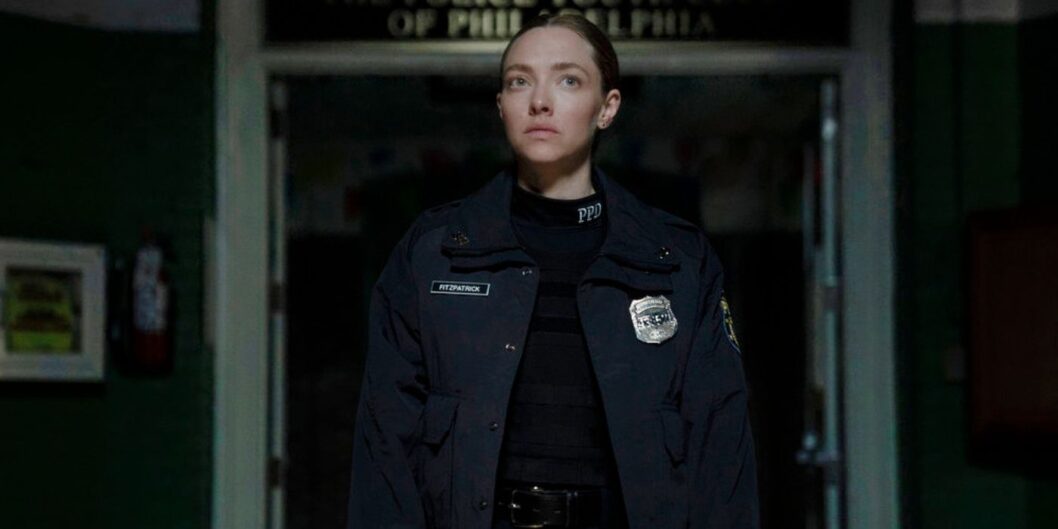Title: Peacock’s “Long Bright River” Challenges Crime Genre Norms with a Raw Look at Addiction and Police Corruption
Introduction
The crime thriller genre has long held a captivating presence on television, often exploring the darker aspects of human nature. While many series settle into familiar patterns involving detectives and criminals, Peacock’s new miniseries, "Long Bright River," distinguishes itself by tackling the urgent issues of police corruption and the human stories of marginalized communities. Based on the bestselling novel by Liz Moore and adapted by showrunner Nikki Toscano, the series brings to light the complexities of addiction, socioeconomic struggles, and systemic failures.
A Personal and Expansive Narrative
Set against the backdrop of Kensington, a neighborhood in Philadelphia grappling with the fallout from deindustrialization and the opioid crisis, "Long Bright River" focuses on Mickey Fitzpatrick, portrayed by Amanda Seyfried, a police officer navigating her beat while dealing with personal challenges. With a passion for music and a deep concern for the people she encounters, Mickey stands out among her colleagues, who perpetuate a culture of disregard for marginalized groups, specifically sex workers and the unhoused.
At the series’ heart is a compelling story of sisterhood, as Mickey risks her career to search for her sister Kacey (played by Ashleigh Cummings), who has vanished amidst a troubling series of murders targeting vulnerable women. Mickey’s relationship with Kacey serves as a poignant lens through which the narrative explores themes of addiction, trauma, and familial bonds, ultimately asking tough questions about love, responsibility, and the complexities of care.
Handling of Substance Abuse with Depth and Empathy
"Long Bright River" excels in its portrayal of the struggles related to substance abuse. Through Mickey’s perspective, the viewer confronts the dilemmas faced by families of addicts: how to provide support without losing oneself amidst the pain. As the series depicts the resilience and autonomy of those living in Kensington, it simultaneously critiques the systems that inadequately support them.
The show’s narrative cleverly avoids the white savior trope, empowering the sex worker community to advocate for their own safety and rights while highlighting the often-overlooked perspective of individuals ensnared in cycles of poverty and addiction.
A Bold Commentary on Police Corruption
In stark contrast to typical crime series, "Long Bright River" does not shy away from addressing the pervasive issue of police corruption. Mickey and her partner Truman Dawes (Nicholas Pinnock), while well-meaning, find themselves powerless against an institution that fails to protect those it claims to serve. The narrative unapologetically exposes the inefficacy of traditional law enforcement approaches when dealing with systemic biases and community neglect.
This critical lens on policing raises important questions regarding accountability and societal responsibility, making the series timely in light of ongoing discussions around law enforcement practices in America.
Performance and Direction
Amanda Seyfried’s portrayal of Mickey Fitzpatrick is being hailed as one of her finest performances to date, displaying a raw emotional depth that resonates throughout the series. Her performance captures the complex internal struggles of a woman torn between her duties as a police officer and the familial ties that bind her.
Supported by a notable cast, including John Doman as their grandfather and Ashleigh Cummings as Kacey, the film’s ensemble delivers powerful performances that further enrich its narrative. The nuanced direction and cinematography capture the lived reality of Kensington, from its struggles to its vibrant cultural history, evoking empathy and understanding in viewers.
Critical Reception and Future Implications
While "Long Bright River" has been praised for its ambition and emotional weight, it has also faced criticism for its limited representation of Black and POC voices. Critics note that while the series successfully sheds light on systemic issues, it could benefit from a more diverse representation of perspectives within the communities it seeks to portray.
As the show prepares for its release on March 13 on Peacock, it signals a potential shift in the crime genre, urging other creators to prioritize authenticity and vulnerability in storytelling. "Long Bright River" intertwines gripping drama with critical social commentary, reiterating the importance of representation in media and encouraging a more empathetic understanding of marginalized communities.
Conclusion
"Long Bright River" marks a significant evolution in crime storytelling, challenging traditional narratives while confronting uncomfortable realities. The series’ commitment to humanizing its characters and highlighting systemic injustices positions it not only as a crime thriller but as a vital examination of society’s failing systems. As audiences tune in, they will not just witness a story about crime—they will be invited to engage with the profound human costs laid bare in the search for truth and justice.









